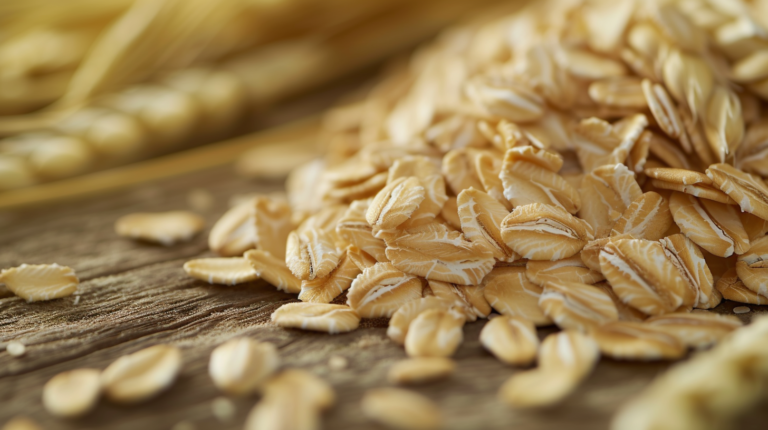In the quest for optimal digestive health, the role of diet cannot be overstated. Among the myriad of food choices available, oats often emerge as a recommended staple. But what is the truth behind oats and their impact on digestive health? This blog delves into the scientific intricacies of oats, their nutritional profile, and how they interact with our digestive system.
Oats are a rich source of soluble fibre, particularly beta-glucan, which plays a pivotal role in digestive health. The soluble fibre in oats absorbs water, forming a gel-like substance in the gut. This process not only slows down digestion, allowing for better nutrient absorption, but also softens stool, making it easier to pass. Consequently, regular consumption of oats can alleviate constipation and maintain bowel regularity—a key aspect of digestive health.
If you’re interested in exploring the balance between different diet types and their impact on health, including the role of fibre, you might find “Vegan Diet versus Animal-Based Diet: Health Perspective” insightful. You can read more about it here.

1. Beta-Glucan: The Digestive Health Powerhouse
Beta-glucan, the star component of oats, has been extensively studied for its health benefits. Beyond its role in promoting bowel regularity, beta-glucan acts as a prebiotic. Prebiotics are nondigestible food components that beneficially affect the host by stimulating the growth and activity of beneficial bacteria in the colon. This fermentation process produces short-chain fatty acids (SCFAs), compounds that have been shown to nourish colon cells and may play a role in protecting against colon cancer.
2. The Impact of Oats on Gut Microbiota
The gut microbiota, the community of microorganisms living in our digestive tract, is crucial for our overall health. The prebiotic effect of oats contributes to a balanced gut microbiota, enhancing the growth of beneficial bacteria such as Lactobacillus and Bifidobacterium. These bacteria are essential for gut health, aiding in digestion, nutrient absorption, and the synthesis of certain vitamins. A healthy gut microbiota is also linked to a reduced risk of some digestive disorders, such as irritable bowel syndrome (IBS) and inflammatory bowel disease (IBD).
For insights into the effects of dietary choices on inflammation, which is closely related to gut health, the article “Natural Whole Foods as a Solution for Reducing Inflammation” offers valuable information. Discover more here.


3. Oats and Gluten Sensitivity
While oats are naturally gluten-free, they are often processed in facilities that handle wheat, barley, and rye, leading to cross-contamination. For individuals with celiac disease or gluten sensitivity, consuming oats that are not certified gluten-free may trigger digestive discomfort and exacerbate symptoms. It is crucial for those with gluten-related disorders to choose oats that are certified gluten-free to avoid any adverse effects on digestive health.
The scientific evidence supports the inclusion of oats in the diet for promoting digestive health. Their high soluble fiber content, particularly beta-glucan, contributes to bowel regularity, supports a healthy gut microbiota, and may offer protective benefits against certain digestive disorders. However, individuals with gluten sensitivity or celiac disease should opt for certified gluten-free oats to avoid potential cross-contamination.
In conclusion, oats can be a valuable addition to a diet focused on digestive health. Their nutritional profile and beneficial effects on the gut make them an excellent choice for those looking to maintain or improve their digestive function. As with any dietary change, it’s important to listen to your body and adjust your diet according to your individual health needs and responses.
To further understand the complex relationship between diet and health, particularly focusing on the risks and benefits of certain fats, the piece “Avoiding Seed Oils for Enhanced Health and Wellbeing” could be enlightening. Learn more about it here.